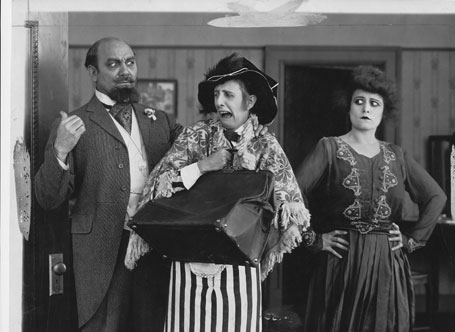
Innovating Silent Cinema: The Papers of Harry & Roy Aitken
The Harry and Roy Aitken Collection contains the papers of two important figures in American cinema of the silent era—and particularly the 1910s. The collection richly documents the production activities of several major studios, units, and filmmakers affiliated with the Aitkens and includes scripts, photos, promotional materials, company ledgers, legal records, and both personal and business correspondence with Hollywood luminaries. Although the collection does not include film prints, it contains paper records relating to some of the United States’ most powerful and well remembered filmmakers, including D.W. Griffith, Mack Sennett, Thomas Ince, and Charlie Chaplin.
This exhibit examines how one robust portion of the Aitken collection—the Scripts and Scenarios Series—can help us understand the profound changes that took place in industry structure, production practices, and film style in the 1910s. It draws on documents from the collection, the rich secondary literature on early cinema, and selected surviving films produced by the Aitkens’ companies. After viewing the timeline below, follow the links at right to progress through the exhibit.
The 1910s were years of great flux in the American film industry. Actors, directors, production heads, and financial backers moved among studios, formed and broke alliances, and both initiated and adapted to changing trends in filmmaking with dizzying speed. The Aitkens were exemplary of such activities. Since getting a clear picture of who was doing what, where, and when can be confusing to the silent movie fan and historian alike, this exhibit includes a detailed timeline of the major people, businesses, and events connected to the Aitkens in the 1910s. That this timeline also serves as a general overview of American filmmaking in that era attests to the brothers’ central positions in cinema history.
This featured collection was researched and written by UW-Madison doctoral candidate and 2009 Jarchow fellow Andrea Comiskey. Thanks to Stephen Jarchow, Michele Hilmes, Maxine Ducey, Dorinda Hartmann, Heather Heckman, and Liz Ellcessor.
